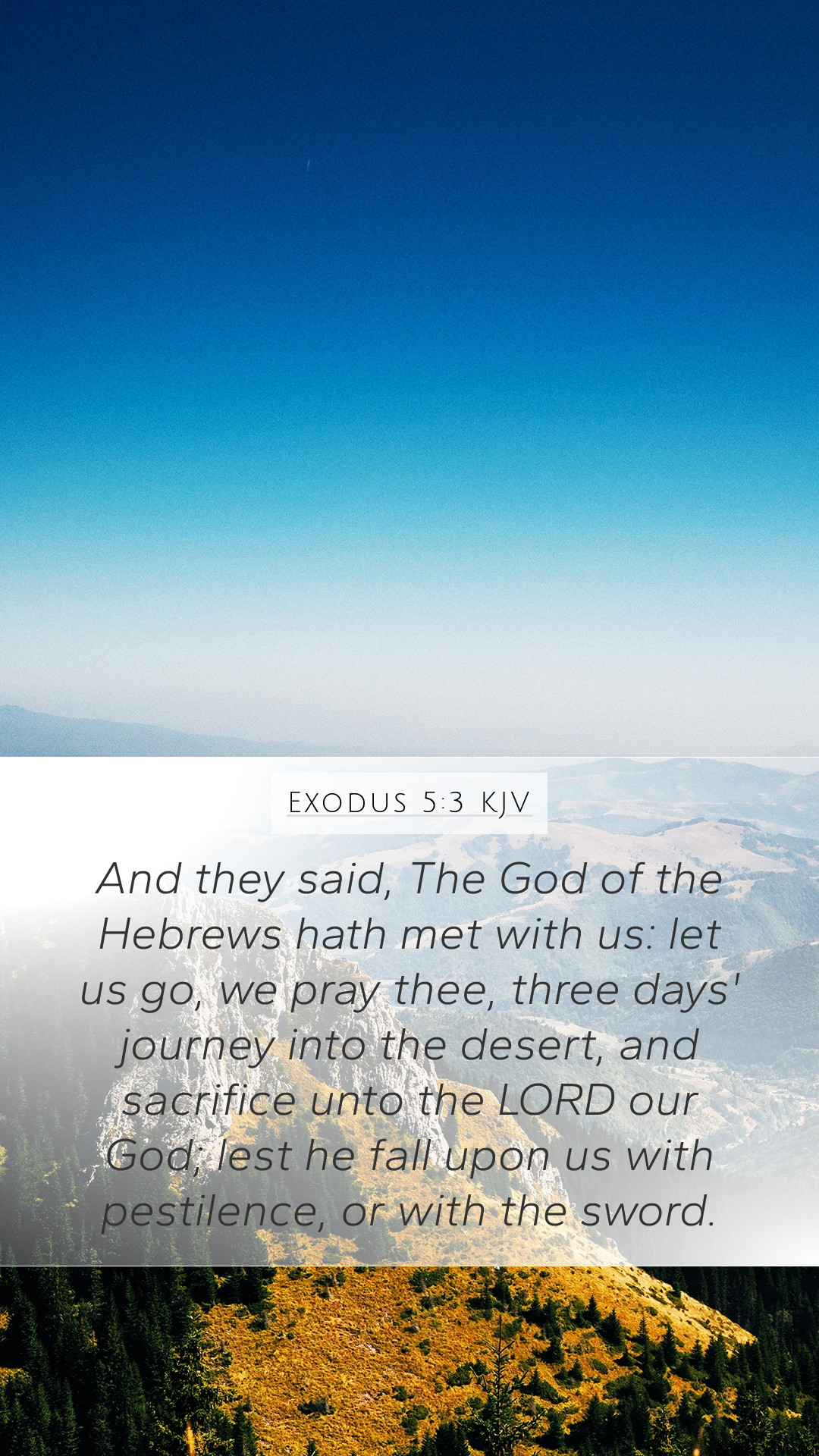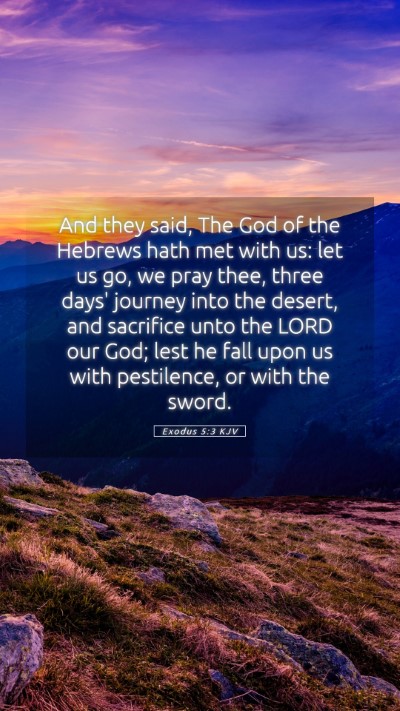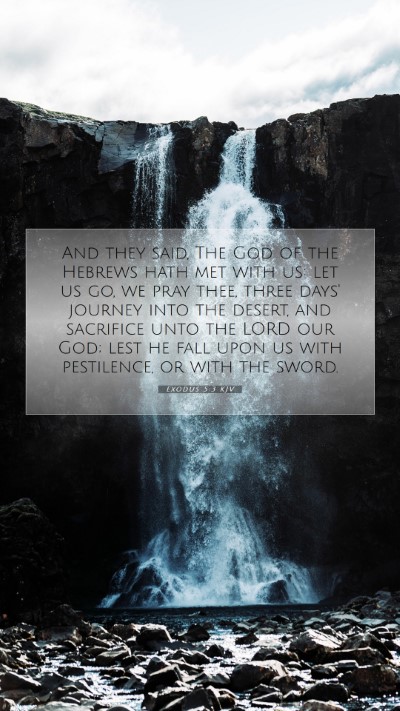Bible Verse Meaning and Commentary on Exodus 5:3
The verse Exodus 5:3 states: "And they said, The God of the Hebrews hath met with us: let us go, we pray thee, three days' journey into the desert, and sacrifice unto the Lord our God; lest he fall upon us with pestilence, or with the sword." This powerful verse reflects the desperate plea of Moses and Aaron to Pharaoh. To understand its full meaning, we will draw insights from well-respected public domain commentaries by Matthew Henry, Albert Barnes, and Adam Clarke.
Verse Context and Historical Background
Exodus recounts the Israelite's plight in Egypt, where they were enslaved. By the time of Exodus 5, Moses and Aaron are tasked with confronting Pharaoh to demand the release of the Israelites for worship. This verse encapsulates their appeal for freedom, underscoring their commitment to God and the urgency of their request as they fear divine retribution if they do not comply.
Matthew Henry's Commentary Insights
According to Matthew Henry, this verse is significant as it portrays God’s sovereignty and the seriousness of the Israelites' situation. Henry posits that the mention of three days' journey indicates a genuine desire for worship — the journey into the desert symbolizes a distance from their oppressors, signifying liberation and spiritual dedication. Henry emphasizes the phrase "lest he fall upon us" as a recognition of God’s power and the authenticity of their fear of divine judgment.
Albert Barnes' Interpretation
Albert Barnes elaborates on the request made to Pharaoh, indicating that it highlights the Israelites' understanding of their covenant with God. The request for three days isn’t merely for a temporary leave; it represents their need to serve God outside the oppressive environment of Egypt. Barnes notes that their portrayal of God as the God of the Hebrews signifies their identity and collective faith, affirming their belief in a higher power that transcends their current suffering.
Adam Clarke's Exegesis
Adam Clarke provides a more in-depth look at the implications of the request to Pharaoh. He explains that invoking God's name in this appeal emphasizes their desperation and fidelity. Clarke points out the possibility that the number three might also symbolize completeness in God's plan, suggesting that this journey was part of a larger divine purpose for Israel. His commentary elaborates that the fear of pestilence and the sword reflects the Israelites' understanding of both God's mercy and judgment.
Major Themes and Insights
- Divine Authority: The verse reflects the acknowledgment that God has direct authority over life and death.
- Collective Faith: The identity of the Hebrews as a nation chosen by God is emphasized through their collective appeal.
- The Urgency of Worship: The plea for a three-day journey highlights the importance of worship in their lives and their need to escape from bondage.
- Fear of Judgment: The concern about pestilence or the sword illustrates their acute awareness of the consequences of disobedience.
Application of the Verse in Daily Life
Understanding this scripture can help individuals appreciate the importance of worship and dedication to God amidst life's challenges. It encourages believers to recognize the seriousness of their commitments and the importance of seeking God’s guidance rather than succumbing to worldly pressures.
Related Bible Cross References
- Exodus 3:18 - The initial request for Pharaoh to let the people go.
- Exodus 12:31 - Pharaoh eventually acquiesces to the requests of Moses and Aaron.
- Leviticus 23:10-11 - The significance of sacrifices and offerings to God.
- Deuteronomy 6:4-9 - The importance of remembering God in daily life.
Conclusion
In summary, Exodus 5:3 serves as a pivotal verse illustrating the intersection of divine command and human obedience. Through the lenses of respected biblical commentaries, we gain important insights that can guide our understanding of the scripture. This verse invites readers to explore not only the historical context but also its relevance in contemporary spiritual life, prompting deeper reflection on the meaning of worship and the importance of heeding divine instructions.
Further Study Resources
For those interested in deepening their understanding of Biblical texts, consider engaging in Bible study groups or utilizing online Bible study tools for structured learning. Various Bible study guides and Bible study materials can provide comprehensive insights on different passages.


